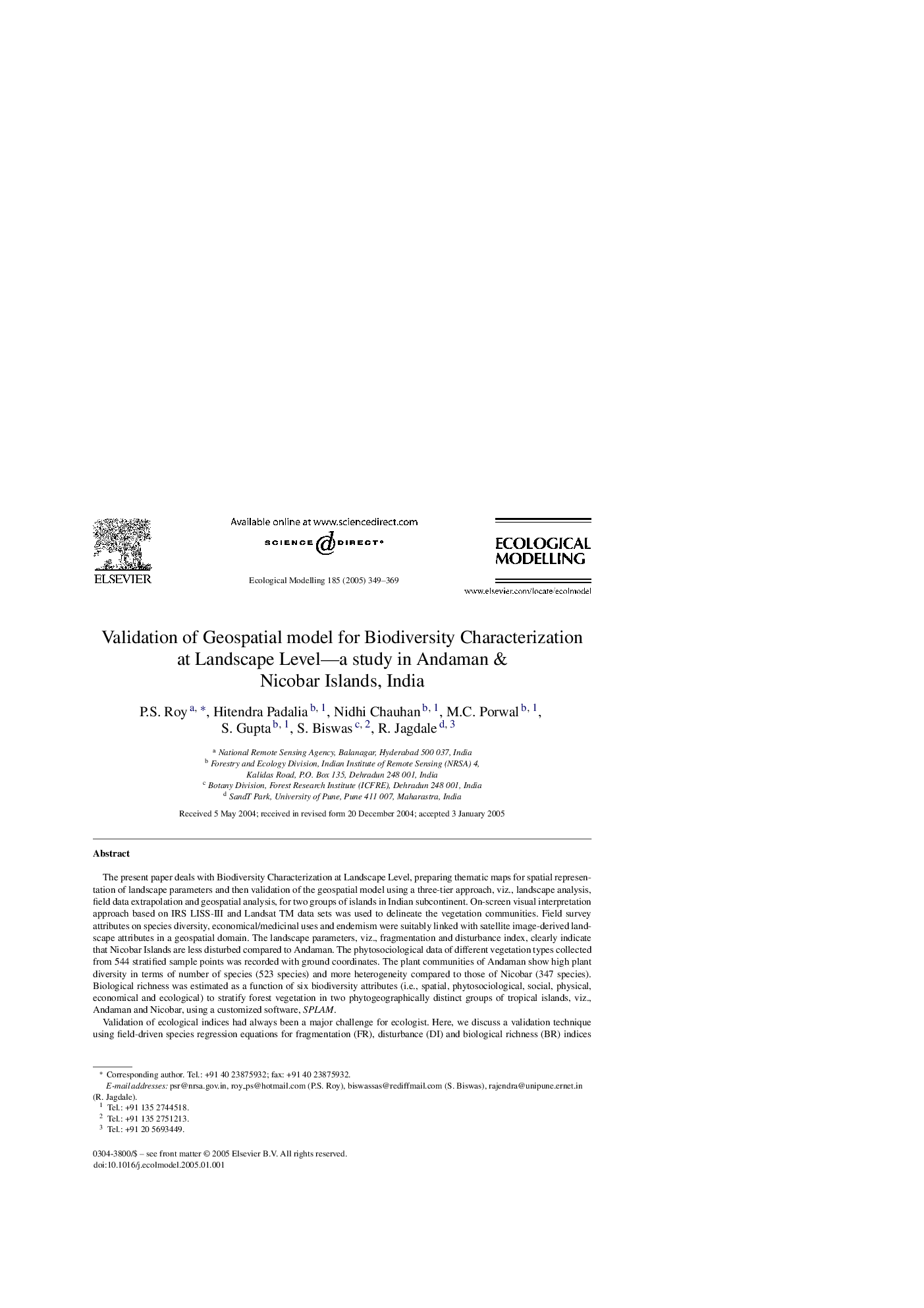| Article ID | Journal | Published Year | Pages | File Type |
|---|---|---|---|---|
| 9443394 | Ecological Modelling | 2005 | 21 Pages |
Abstract
Validation of ecological indices had always been a major challenge for ecologist. Here, we discuss a validation technique using field-driven species regression equations for fragmentation (FR), disturbance (DI) and biological richness (BR) indices and propose improvements in the biological richness methodology. The research question of establishment of linkages between expressions of diversity at different scales is sought and thereby validating the existing model outputs has been proposed. The sensitivity of in-field measurements with landscape parameters has been explicitly analyzed. During validation, the species richness, diversity and mean basal area have shown slow decrease with sudden rise in intermediate levels followed by a steep decline at increasing levels of fragmentation and disturbance. The empirically derived regression coefficient has significant correspondence (p < 0.05) in terms of community response in both island's groups. The vegetation communities in the forested landscape possess significant linkages with landscape scale processes, viz., FR and DI, as evident by the degree of correlation. The heterogeneity measured as diversity in habit group shows community dimensions in different spatial zones. The generation of baseline data on community ecology allows prioritization of planning process and evolves specific management practices. It may be concluded that the improved biodiversity assessment model and the designed validation techniques have enhanced the reliability of model thus widened the scope for its application in the rapid biodiversity assessment.
Related Topics
Life Sciences
Agricultural and Biological Sciences
Ecology, Evolution, Behavior and Systematics
Authors
P.S. Roy, Hitendra Padalia, Nidhi Chauhan, M.C. Porwal, S. Gupta, S. Biswas, R. Jagdale,
